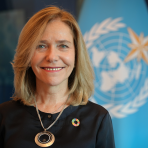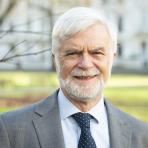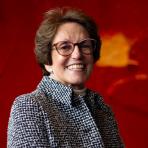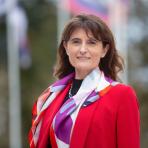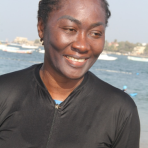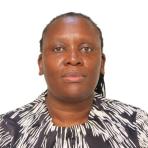Earth Information Day 2025

Systematic observation is vital for monitoring and understanding weather and climate status and trends to inform climate action. Earth observation networks, including in-situ and satellite-based observations, provide relevant data for forecasting and modelling climate change, response mechanism, risk management including supporting relate services such as early warning systems (EWS). Within the UNFCCC process, the annual Earth Information Day (EID) provides an opportunity for Parties to engage with the systematic observation community to share and understand latest information, trends and projections of the climate to inform negotiations and wider decision-making. Through EID, messages on closing observation gaps, enhancing systematic observations and related initiatives, and advancing cooperation have been recognized.
The year's session, which was held in plenary, provided relevant updates on the state of the global climate as well as status of the global climate observation system and related essential climate variables (ECVs). Institutions responsible for Earth observations shared current trends, records and information as well as gaps and emerging opportunities in advancing and sustaining systematic observation. Specifically, updates included:
- The status of key global climate indicators, which include temperature trends, ocean heat content, occurrence of extreme and slow-onset events and their attribution, and greenhouse gas (GHG) emissions and concentrations, including through the World Meteorological Organization (WMO) State of the Global Climate Update.
- Status of monitoring ECVs and efforts related to sustaining long-term observations; at regional and global levels, including work undertaken by the Global Climate Observing System (GCOS) in this regard;
- Initiatives and efforts dedicated to advancing systematic observations, including to support work under the Convention and the Paris Agreement, such as through the SOFF and EW4ALL.
Agenda
15:00 – 15:20 UTC-3 — Opening Segment
Opening Remarks facilitated by Adonia Ayebare, Chair of the Subsidiary Body for Scientific and Technological Advice (SBSTA)
- Simon Stiell, Executive Secretary, United Nations Framework Convention on Climate Change (UNFCCC)
- Prof Celeste Saulo, Secretary-General, World Meteorological Organization (WMO)
- Jim Skea, Chair, Intergovernmental Panel on Climate Change (IPCC)
- Thelma Krug, Chair, Global Climate Observing System (GCOS)
15:20 – 16:30 UTC-3 — Plenary: Updates on the state of the climate, sustaining Earth observations and related Initiatives
Facilitated by Adonia Ayebare, Chair of the Subsidiary Body for Scientific and Technological Advice (SBSTA)
- Presentation 1: WMO 2025 State of the Global Climate Update by Albert Fischer, Director WIGOS Division, WMO
- Presentation 2: Advances in sustaining systematic observations and scalable related innovations by Florence Rabier, European Centre for Medium-Range Weather Forecasts Committee on Earth Observation Satellites (ECMWF-CEOS)/ Coordination Group for Meteorological Satellites (CGMS) and Group on Earth Observations (GEO) and Markus Repnik, Systematic Observations Financing Facility (SOFF)
- Presentation 3: Integrated observation systems and innovations for supporting prediction of events and Early Warnings for All (EW4ALL) by Paulo Nobre, National Institute for Space Research (Instituto Nacional de Pesquisas Espaciais), Brazil
- Presentation 4: Occurrence and monitoring of extreme events and related attribution by Julie Arrighi, World Weather Attribution
- Presentation 5: Observations from indicators on global climate change by Piers Forster, Indicators of Global Climate Change Initiative (IGCC)
16:30 – 17:45 UTC-3 — Breakout Session 1: Observations for supporting climate action, and the ocean and cryosphere
Facilitated by Patricia Nying’uro and Gabriel Kpaka
- Presentation 1: Observations for GHG inventories and reporting by Clement Albergel, European Space Agency Committee on Earth Observation Satellites (ESA-CEOS)/Coordination Group for Meteorological Satellites (CGMS) and Thais M Rosan, University of Exeter and Brazil
- Presentation 2: Monitoring adaptation actions, including GGA, and building resilient futures by Aïda Diongue-Niang, Senegal
- Presentation 3: Advances in ocean monitoring and experiences in enhancing prediction and modelling by Karina Von Schukmann, Global Ocean Observing System(GOOS)
- Presentation 4: Cryosphere changes monitoring and updates by Sudan Bikash Maharjan International Centre for Integrated Mountain Development (ICIMOD)
- Presentation 5: Earth observations for the assessment of economic and non-economic losses by Coral Pasisi, Pacific Community
16:30 – 17:45 UTC-3 — Breakout Session 2: Earth observations - data access and sharing, and related innovations and technologies
Facilitated by Frank McGovern and Leonardo Stiel
- Presentation 1: Climate data use and the connection between local observation networks and global outputs by Baylor Fox-Kemper, Brown University, World Climate Research Programme (WCRP) Earth System Modelling and Observations (ESMO)
- Presentation 2: Recent efforts in sustaining long-term observations, data-sharing and analysis of atmospheric GHGs and ocean variables by Toshinori Aoyagi, Japan Meteorological Agency (JMA)
- Presentation 3: Artificial Intelligence in Earth observations and climate services including EWS by Shruti Nath, University of Oxford, and Lucy Mtilatila, Department of Climate Change and Meteorological Services, Malawi
- Presentation 4: Advancing data access, sharing and cooperation by Raúl R. Cordero, University of Groningen, Netherlands/Chile
17:45 – 18:00 UTC-3 — Closing Segment
- Reporting back session by facilitators
- Closing Remarks facilitated by Adonia Ayebare, Chair of the Subsidiary Body for Scientific and Technological Advice (SBSTA)
- Close of dialogue session
Speakers
